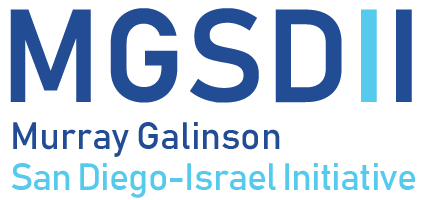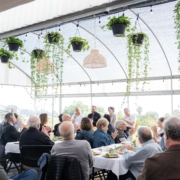MGSDII featured in San Diego Jewish World
Program Builds Connections Between Israeli Academics and Local Universities

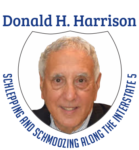 LA JOLLA, California – In various buildings across the UCSD campus, one may find visiting professors from Israel teaching courses in their academic disciplines. Between 2016 and 2023, under the auspices of the Murray Galinson San Diego-Israel Initiative (MGSDII), 15 Israeli professors will have taught at UCSD for a semester, a year, and some for multiple years. Their academic specialties include anthropology, archaeology, economics, international relations, political science, sociology, and urban studies.
LA JOLLA, California – In various buildings across the UCSD campus, one may find visiting professors from Israel teaching courses in their academic disciplines. Between 2016 and 2023, under the auspices of the Murray Galinson San Diego-Israel Initiative (MGSDII), 15 Israeli professors will have taught at UCSD for a semester, a year, and some for multiple years. Their academic specialties include anthropology, archaeology, economics, international relations, political science, sociology, and urban studies.
MGSDII operates parallel programs, with different professors, at San Diego State University, Cal State University San Marcos, and the University of San Diego. One year, an Israeli professor taught at Cal Western Law School. Cumulatively, the universities in San Diego County host the largest ongoing Israel Studies program in the United States, having attracted through the 2022-2023 academic year 43 visiting professors from Israel. These faculty members not only teach on campus but also give lectures to community groups and interviews to news media.
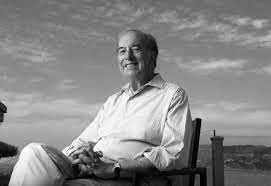
Murray Galinson, z”l
The Encinitas-based Leichtag Foundation, created by the late entrepreneurs Lee and Toni Leichtag, incubated the program. The salaries of the Israeli professors are paid either through a grant to the universities or via a direct payment to the professors themselves, depending on the preference of each university. The program was named after the late banker and Democratic party activist Murray Galinson, who as a participant in the Leichtag Foundation’s due-diligence meetings had persuasively urged educational initiatives. Galinson had served as chairman of the California State Universities’ Board of Trustees.
After September 2016, when the program began, other philanthropists in the community also provided funds to underwrite the costs of individual Israeli professors. These philanthropists included the late Joseph Glickman, who was father-in-law to Murray Galinson; Elaine Galinson and Herb Solomon; Gloria and Rod Stone; Esther Fisher; Robin and Leo Eisenberg, Sara and Mitch Wagner, and Joan and Irwin Jacobs.
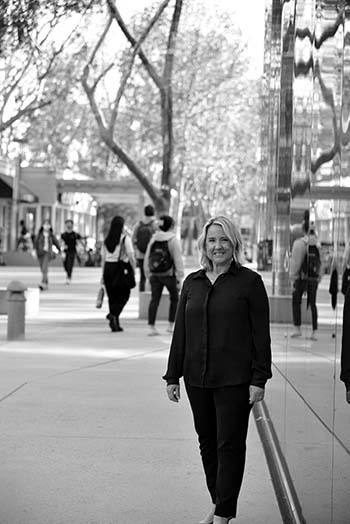
Susan Lapidus
Susan Lapidus, a longtime Jewish communal worker with previous positions at the Jewish Federation of San Diego and at Jewish Family Service, serves as MGSDII’s executive director. Some affectionately call her the shadchan (matchmaker) because it is her job to acquaint Israeli professors and local San Diego-based professors with the program and then bring about matches. In some cases, San Diego-based professors may suggest the names of Israeli colleagues they would like to teach a course at their campus; in other instances, Israeli professors will apply directly to the program.
Except during the Covid pandemic, Lapidus travels to Israel twice a year to network with professors at such institutions as Bar Ilan University, Ben-Gurion University, Hebrew University, IDC Herzliya (now Reichman University), Technion, Tel Aviv University, Tel-Hai College, and the University of Haifa. She also regularly attends Israel Studies Conferences.
Having the professors teaching in the classroom enables students “to ask questions that go beyond sound bites and news clips that they might hear about Israel,” Lapidus said. The visiting professors teach in their individual study areas. “If someone is teaching political science, for example, they’re teaching the politics of the Middle East or the politics of Israel. If someone is teaching film (which many visiting Israelis do at San Diego State University), they use Israeli film or Israeli television for their case studies,” Lapidus explained.
MGSDII’s online materials state that “investing in Israel Studies is an important way to affect knowledge and attitudes concerning Israel. By creating serious, educated, and balanced discourse, and by not shying away from Israel’s challenges and achievements, Israel Studies has a significant impact on the image of Israel that is different to, but on par with or exceeding, results of pro-Israel advocacy organizations. Israel Studies programs are relational and academic rather than ideological.”
In addition to visiting professorships, MGSDII sponsors other programs, Lapidus said. “We have teamed up San Diego professors with Israeli professors. Two classes study together and have an exchange in a year-long student-to-student and professor-to-professor collaboration. The first at UCSD was with Professor Thomas Levy. He partnered with Professor Assaf Yasur-Landau of the University of Haifa and studied underwater archaeology and climate change.”
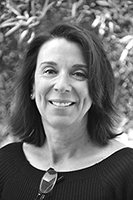
Mirle Rabinowitz-Bussell
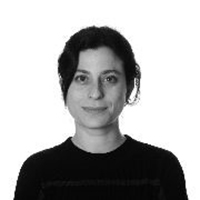
Mor Shilon
Another matched UCSD Prof. Mirle Rabinowitz-Bussell of the Urban Studies Department with Visiting Professor Mor Shilon of the Technion in a program contrasting and comparing urban development programs in the Logan Heights neighborhood of San Diego with Jisr az-Zarqa, a similarly economically disadvantaged community south of the Haifa area. “The two classes will work together, compare methods, compare populations,” Lapidus said. “If Covid cooperates, they will visit each other’s towns.”
In another MGSDII innovation, San Diego professors who wish to research in Israel and use that research as the basis of an Israeli studies class to be taught in San Diego are eligible for grants to underwrite that study. To date, one engineering professor at the Catholic-run University of San Diego, Frank Jacobwitz, has taken advantage of the program researching at Azrieli College in Jerusalem about water system innovations.
Erez Ben-Yosef, a Tel Aviv University archaeologist who taught at UCSD during the 2018-2019 school year, was featured in the December 2021 edition of Smithsonian Magazine under the headline “An Archaeological Dig Reignites the Debate Over the Old Testament’s Historical Accuracy.” At a dig in southern Israel’s barren Timna Valley at which he was jointed by colleagues from UCSD, Ben-Yosef found 11 items that he thought were probably insignificant—charcoal and seeds. However carbon-14 dating by Oxford University estimated their origins at 1,000 BCE, the time of the biblical King Solomon, whoe very existence has been challenged by other archaeologists.
The Smithsonian Magazine article by Matti Friedman reported that the copper mines at Timna had been believed to have been worked by Egyptians far earlier than the time of King Solomon. Now there was contradictory evidence leading to the hypothesis that the mines were worked by the Edomites contemporaneously with the purported time of Solomon. While no evidence of buildings had been left behind, this in Ben-Yosef’s view did not disprove that a sophisticated society had once lived at the site – not in buildings, but in tents, leaving only miniscule traces of their existence. Similarly, despite the lack of buildings or palaces providing evidence of King Solomon’s civilization, it is possible that Israelites in his era also were tent-dwellers. The thesis startled Ben-Yosef’s colleagues at Tel Aviv University, who are skeptical—in some cases even dismissive—of biblical accounts.
At San Diego State University, Israeli filmmakers generate excitement in their field, especially because some of their works are readily viewable on Netflix or other streaming services. SDSU’s visiting professors have included principals of such productions as Fauda (writer Moshe Zonder), Shtisel (creator Ori Elon), and The Girl from Oslo (creator Ronit Weiss-Berkovitz).
Lapidus said the MGSDII’s success can be measured by the numbers of students the program has engaged. Through December of 2021, over 1,200 students had enrolled in Israeli studies courses throughout San Diego County. 200 students and professors participated in ongoing collaborative learning and travel programs. Additionally, MGSDII participated in over 100 Israeli-related events in the community.
*
Donald H. Harrison is editor emeritus of San Diego Jewish World. He may be contacted via donald.harrison@sdjewishworld.com
